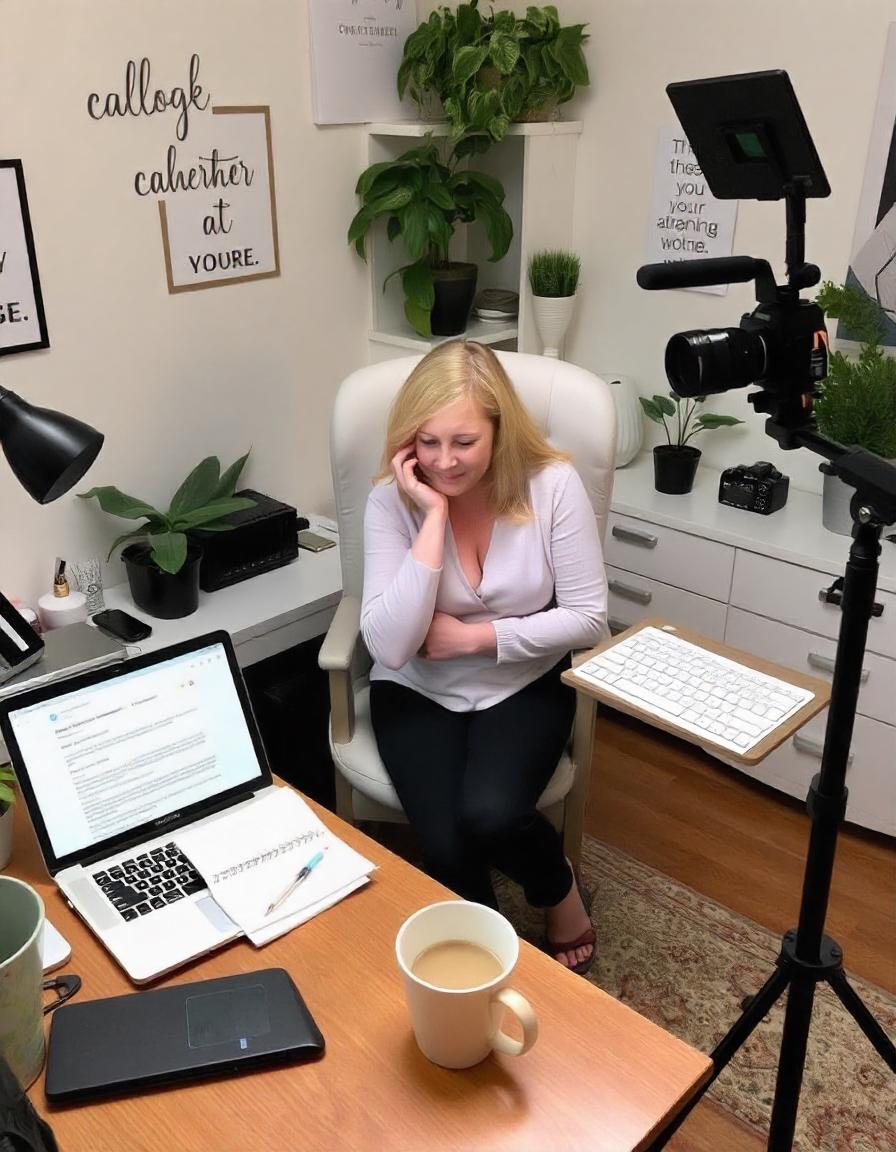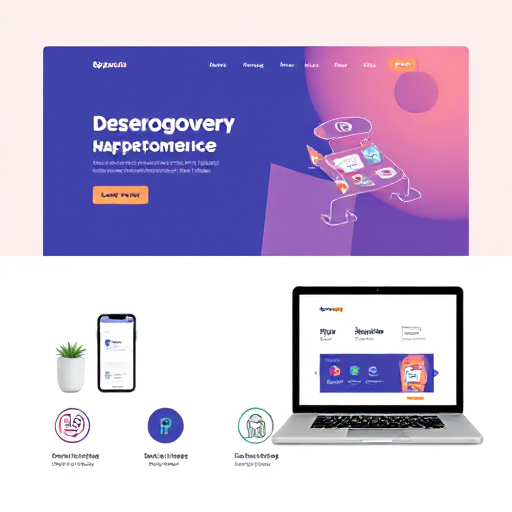Blogging vs. Vlogging: Understanding The Meaning And Differences
In the digital age, content creation has become one of the most popular and accessible ways for individuals, brands, and businesses to share information, connect with audiences, and even make a living. Two of the most common forms of content creation are blogging and vlogging. While both serve similar purposes—informing, educating, or entertaining audiences—they differ in format, style, and the platforms used.
How to Earn Money Online – The Ultimate Guide to Financial Freedom!
Understanding what blogging and vlogging mean, and the key distinctions between them, is essential for anyone interested in starting a content creation journey.
What is Blogging?
Blogging refers to the practice of writing and publishing content on a website or platform, typically in the form of articles, essays, or personal reflections. A blog can cover an extensive range of topics, from personal experiences to professional advice, tutorials, news, reviews, or opinion pieces. The primary medium of blogging is text, although blogs often incorporate other elements like images, infographics, and links to enhance the content.
Key Characteristics of Blogging:
- Written Content: Blogging relies mainly on written text to convey ideas, stories, and information. Posts may range from short articles to longer, detailed posts.
- SEO Optimization: Blogs are often optimized for search engines (SEO), meaning they are written with specific keywords, metadata, and tags to improve visibility on search engine result pages (SERPs).
- Personal and Professional: While blogs can be used for personal reflections or diaries, they are also powerful tools for professional purposes, such as marketing, brand building, and thought leadership.
- Interactivity: Readers can typically engage with the content through comment sections or by sharing blog posts on social media. Bloggers also often encourage discussions and interaction through email newsletters or social media.
- Monetization: Many bloggers monetize their blogs through affiliate marketing, sponsored content, product sales, and ad revenue.
Find Out How To Make Money As A Full-Time Writer/Blogger Guide
Benefits of Blogging:
- Flexibility and Control: As a blogger, you have the freedom to choose your topics, schedule, and how you present your content. Blogs also offer a space for in-depth articles, tutorials, and guides that are search-engine optimized.
- Authority Building: A well-maintained blog can position you as an authority in your niche, helping you build trust with your audience over time.
- Lower Production Costs: Starting a blog requires minimal investment in terms of equipment—just a computer, internet access, and a blogging platform like WordPress, Medium, or Blogger.
What is Vlogging?
Vlogging, short for video blogging, is the act of creating and sharing video content, typically in the form of personal stories, tutorials, product reviews, or informational content. Unlike blogging, which relies on written text, vlogging is a highly visual and auditory medium that allows creators to connect with audiences through video.
Vlogs are often uploaded to platforms like YouTube, Instagram, TikTok, or Facebook, where viewers can watch and interact with the content. Vlogging is popular for everything from travel diaries to cooking shows, beauty tutorials, gaming content, and daily life updates.
Key Characteristics of Vlogging:
- Visual and Auditory Content: Vlogging combines video, audio, and visuals. Vloggers use cameras, microphones, and editing tools to produce content that is visually engaging and has an auditory component (voiceovers, music, and sound effects).
- Engagement and Personality: Vlogs offer an opportunity to showcase a creator’s personality. Viewers connect with the creator’s voice, expressions, and authenticity, often leading to a stronger emotional connection.
- Real-Time and Interactive: Many vloggers share their experiences in real-time through live streaming or recorded daily vlogs. Viewers can engage by commenting, liking, sharing, and even interacting during live sessions.
- Platform Diversity: Vlogs are typically published on video-sharing platforms like YouTube or social media apps like Instagram and TikTok, where videos are easily shareable and highly discoverable.
- Monetization: Vloggers can monetize their videos through ad revenue, sponsored content, affiliate links, brand partnerships, and crowdfunding platforms like Patreon.
Benefits of Vlogging:
- Stronger Connection with Audiences: Vlogs allow viewers to see and hear the creator, fostering a more personal connection. Viewers often feel they “know” the vlogger, which can increase loyalty and engagement.
- Visual Appeal: Video content is often more engaging than written content, offering an immersive experience that can captivate viewers and encourage them to watch longer.
- Virality and Reach: Video content has a higher potential for going viral, especially when shared on social media platforms. A single viral video can dramatically boost a creator’s visibility and followers.
Comparing Blogging and Vlogging
While both blogging and vlogging are powerful forms of content creation, they differ in several important ways:
1. Content Format
- Blogging: Written articles, often accompanied by images, infographics, or other multimedia.
- Vlogging: Video content, often with added audio elements like narration, music, or sound effects.
2. Audience Engagement
- Blogging: Engagement mainly occurs through written comments, social sharing, and email subscriptions.
- Vlogging: Vlogging fosters more immediate and interactive engagement, as viewers can comment, like, share, and subscribe. Vlogs are often more personal, allowing for direct interaction.
3. Learning Curve
- Blogging: Primarily requires writing skills, an understanding of SEO, and basic web design knowledge. Blog posts may require less technical equipment compared to video production.
- Vlogging: Requires equipment (camera, microphone, editing software) and skills related to video production, such as lighting, editing, and filming.
4. Time Commitment
- Blogging: Writing a blog post can take hours depending on the topic, but it typically requires less editing compared to video production.
- Vlogging: Vlogging requires time for shooting video footage, editing, and producing a polished final video. This can often take longer than writing a blog post.
5. SEO and Discoverability
- Blogging: Blogs can be optimized for search engines, helping them rank in search engine results. Blogs are easily indexed by Google and can drive organic traffic.
- Vlogging: Vlogs can also be optimized for SEO, especially on video platforms like YouTube. Keywords, descriptions, and tags help make videos discoverable.
Find Out How To Make Money As A Full-Time Writer/Blogger Guide
Both blogging and vlogging offer unique advantages as content creation tools. Blogging excels in written communication, SEO, and flexibility, while vlogging provides a more personal, engaging, and visual way to connect with audiences.
The choice between blogging and vlogging largely depends on your personal preferences, strengths, and the type of content you want to create. If you prefer writing and want to build a detailed, informative presence online, blogging might be the better choice. On the other hand, if you’re more comfortable on camera, enjoy visual storytelling, and seek a more direct connection with your audience, vlogging could be the way to go.
In fact, many successful content creators and businesses use both blogging and vlogging as part of their content strategy to maximize their reach, engagement, and monetization potential. By understanding the differences and benefits of each, you can decide which path to take—or combine them for a well-rounded digital content strategy.







